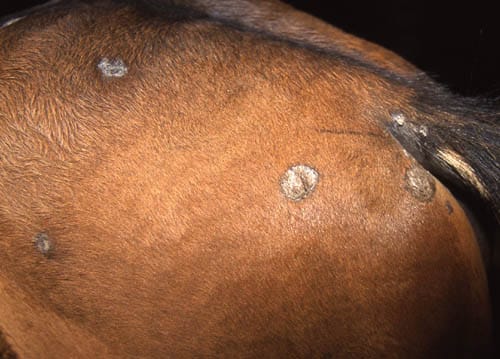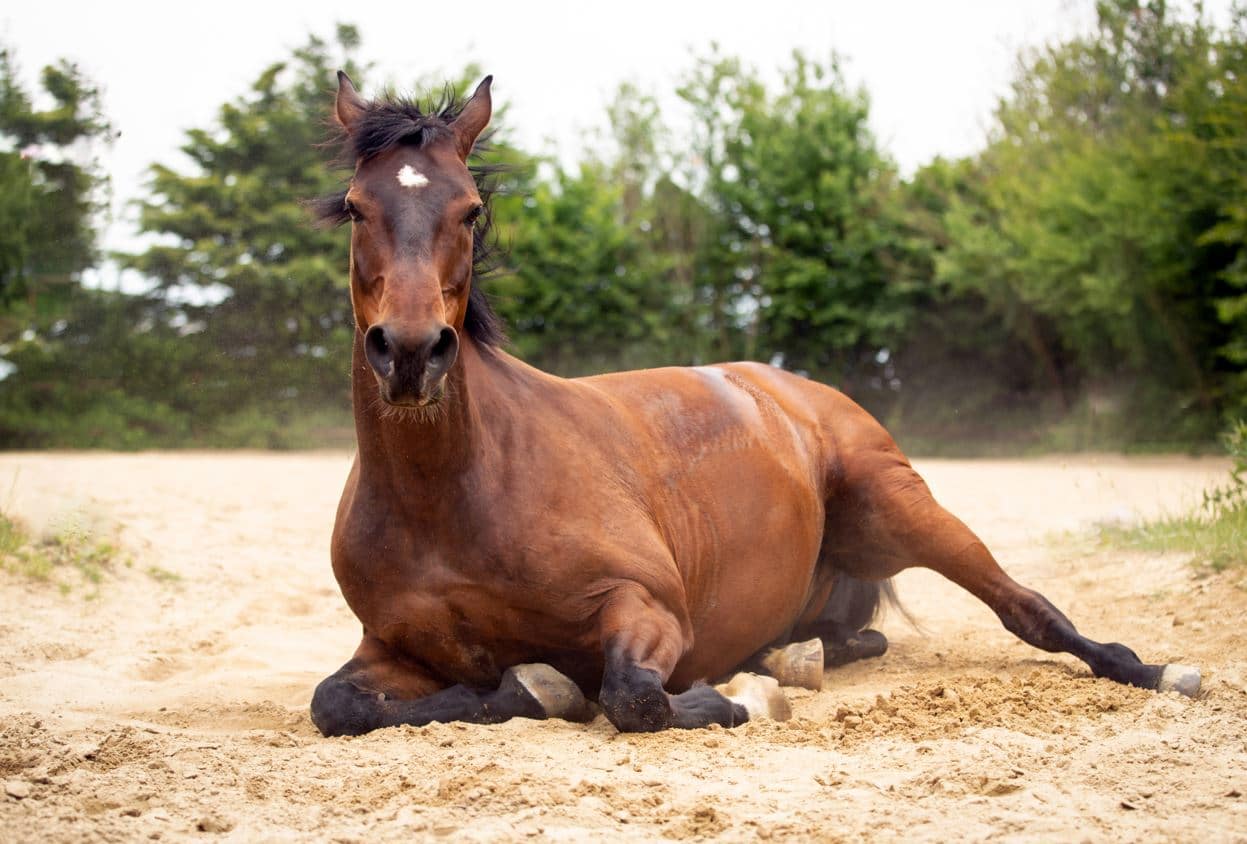Ringworm is one of the most common infections in equestrian centers and stud farms. In summer as well as in winter, this fungus spreads very easily between equids, but can also in some rare cases be transmitted to humans. Here are some tips to get rid of it efficiently.
Horse disease: what is horse ringworm ?
First of all, let’s decipher what exactly ringworm is: it is a contagious fungus that causes skin lesions on horses. It affects horses of all ages, male and female. Symptoms of ringworm are well-defined hairless areas with skin flakes (dry ringworm, the most common), covering the head, neck and back over time. Some varieties of ringworm may have slightly raised, oozing lesions, known as suppurative ringworm (rarer). In any case, they do not cause itching.
Ringworm is transmitted between horses, but some agents can also be transmitted through the soil. These fungi are very long-lived, as they can remain in the environment for up to 18 months.
Ringworm is transmitted between horses, but some agents can also be transmitted through the soil. These fungi are very long-lived, as they can remain in the environment for up to 18 months.

To diagnose ringworm in your horse, your veterinarian will take a hair sample, which will then be examined under a microscope in the clinic. Examinations may also include a microbiological culture to determine the fungus in question and its mode of transmission (between equines and/or via soil). However, these examinations can take up to 4 weeks, which makes the final diagnosis quite long.
What treatment should be adopted to treat horse ringworm ?
Once the diagnosis is made, your veterinarian will be able to choose between different treatments. The most common treatment against ringworm is local, it consists in applying on the lesions an antimycotic (enilcolazone) or iodine-based antiseptic, using a sponge dedicated to the treatment, without rinsing. This treatment should be repeated every 3 or 4 days, and should be applied with gloves. In some severe cases of ringworm, your veterinarian may also prescribe a general treatment with griseofulvin, for about 10 days.
In addition to the medical treatment, many measures must be observed in order to avoid the spread of the fungus to other equines in your facility. In particular, your horse should have its own grooming and tacking equipment. All your textiles (saddle cloths, blankets, work belts, etc.) and brushes must be cleaned with Imaveral (leave in a bag for 2 days before rinsing) or put in the washing machine with a disinfectant product. Equines with horse ringworm should not come in contact with healthy horses.
Also, avoid touching healthy horses after touching cases of horse ringworm without washing your hands first. Stalls, feed bunks and shelters used by infected horses should be disinfected.
Food supplements can also be administered to your horse to promote hair growth and strengthen its immune system, such as brewer’s yeast.
What preventive measures can be taken against horse ringworm ?
In order to avoid a return of ringworm in your stables, a few measures can help you. First of all, make sure that your horse does not have any vitamin and trace element deficiencies. Your horse’s diet and lifestyle must be adapted to its needs. Indeed, skin diseases tend to affect horses with a weakened immune system more easily.
Also, be sure to use (whenever possible) equipment that is unique to your horse, since spores are easily transmitted from one horse to another via saddle pads or grooming equipment. Also, remember to disinfect the stables at least once a year.



